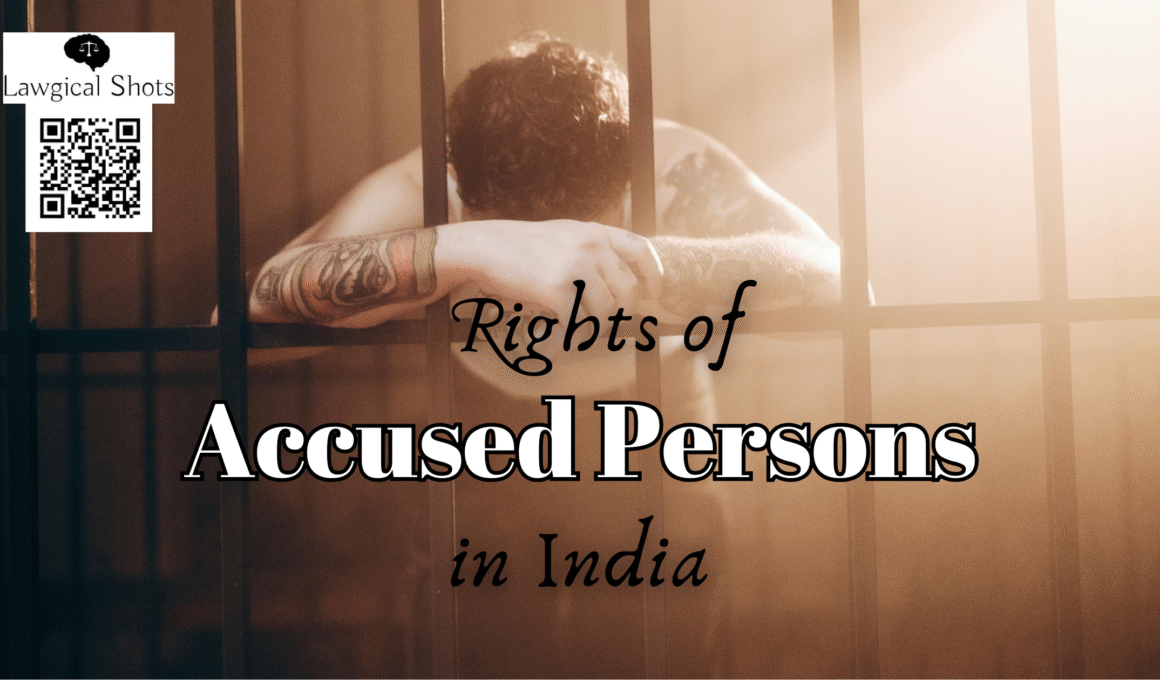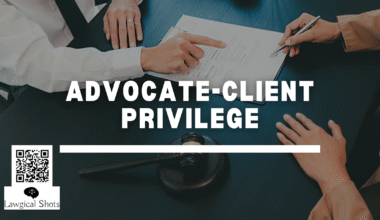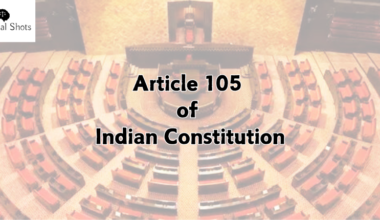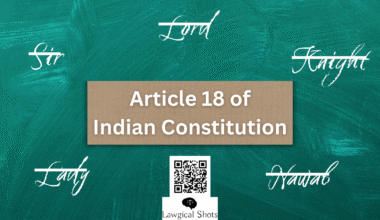Innocent or guilty, no one wants to be standing in a Court of Law to defend himself/herself against strong allegations. But when a person is accused of committing a crime, does it mean he/she is already guilty? It may sometimes be the brutal truth in our society, but not in Courts. The law states that a person should be assumed as innocent until proven guilty. That’s not all, since there are several other rights of accused persons in India which entitle persons accused of crime to certain protection. Here is a list of rights for accused in India as laid in the Constitution of India and other Statutory Laws.
Fundamental Rights of Accused Persons in India
- Protection against Retrospective Provisions
There is a Latin term “ex post facto” which means “from a thing done afterward”. The term reflects that if an act is done today, and the law makes the said action illegal tomorrow, the law does not apply retroactively. The Article 20 of the Constitution of India extends the protection to accused persons in India. Any person can be convicted for violation of law in force at a particular time. Even the retroactively increased punishment shall not be imposed. Thus, the law in force at a specific time applies to a specific offence committed during that time.
Article 20(3) of the Indian Constitution lays that “No person accused of any offence shall be compelled to be a witness against himself”. In other words, nobody can be compelled to confess about committing an offence. Being one of the fundamental rights of accused in India, it protects an accused person to state things against himself/herself. Thus, the Prosecution may bring other evidence to prove the offence.
Article 20 of the Indian Constitution protects the accused persons. Clause 2 of the same lays that “No person shall be prosecuted and punished for the same offence more than once.” Thus, if an offence is committed once, the trial takes place once, and the person may be punished at once. Appeals are an exception and considered part of one trial only. In other words, if a person has been accused of committing an offence and found to be innocent by the Court, the same person cannot be tried again for the same offence he/she was acquitted.
- Right to be Presented before the Magistrate within 24 hours of Arrest
Article 20(2) requires an arrested person to be produced before a Magistrate within 24 hours of such arrest. Though the time frame excludes the time necessary for the journey from the place of arrest to the court of the Magistrate. Thus, if arrested, a person should be brought to the Magistrate Court, and the Magistrate can authorize to extend the said 24-hour period.
- Preventive Detention of 3 months
While Article 22 of Constitution lays about protection against arrest and detention, there are different scenarios. Since preventive detention is inevitable to maintain law and order in a society, there is a limit imposed. The said preventive detention cannot be extended beyond 3 months. Although in practice, the provision is not followed religiously, because there are delays at every step of investigation, and filing of chargesheet takes a lot of time. Thus, Police time and again seek extension of such detention, unless a strong case is made on part of the accused person for release.
- Right to be Informed of Criminal Charges
What happens when the Police arrest you but you have no clue what you do to be arrested. Article 22(1) of the Constitution protects against arrest and detention in certain cases. The provision lays that any arrested person should be informed of the grounds for such arrest.
- Right to Engage an Advocate
Not everyone is a Legal Practitioner in India. And to be represented before a Court of Law among the complex legal jargons, you need a lawyer by your side. The latter part of the Article 22(1) of Constitution entitles an arrested person to consult and be defended by an Advocate of his/her choice. Thus, the State or Police cannot impose a lawyer on you. You can choose an Advocate of your own choice, provided that he/she is enrolled with the Bar to practice in Indian Courts.
Legal Rights of Accused Person in India
- Right to Fair Trial
The essence of fair trial is embedded in Article 21 of the Indian Constitution which lays about right to life and personal liberty. The principles of natural justice are major players during the trial in India. Fair trial not only means the accused be treated fairly, it means the accused should be given an opportunity of being heard, there should be no bias, given every opportunity to present evidence to prove his/her innocence. Absence of fair trial may at times lead to the acquittal of the accused person.
Justice is nowhere if a person cannot afford legal assistance due to financial crunch. The rights of accused persons in India also include the right to free legal aid. While it is not per se included among the fundamental rights of Constitution, Article 39A being a Directive Principle of State Policy requires the State to provide free legal aid. If an accused person cannot afford to hire the services of a criminal lawyer, the Free Legal Aid Department or even the Court may appoint an Amicus Curiae to represent such an accused person.
- Right to Silence
Right to speak also includes the right to remain silent before the Court. The right has been derived from the fundamental right against self incrimination. If you know that your response may go against you, you may choose to remain silent. Even during Police interrogation, Examination before the Court, Cross-Examination, the accused person may remain silent on a specific question. Nobody can compel the accused to speak up in such a case. Although such silence may at times go against the accused person, that he/she has been hiding something. Even then, it is the Prosecution which has to present the evidence to prove the case beyond reasonable doubt.
- Right to Bail
There is a very famous statement said by Judges in Criminal Courts – “Bail is the Rule and Jail is the Exception”. In bailable offences, bail becomes a right. The person may be arrested, but has to be released on bail by the Police. In case of non-bailable offences, the Court has to decide whether the accused may be or may not be likely to tamper with the evidence, threaten the witnesses, flee the country during pendency of case, the prima facie case against him/her, etc. If the Court is of the opinion that the accused being released on bail will not harm the trial, bail may be granted even in non-bailable offences.
- Right to Appeal
In India, the legal system is segregated in a hierarchical manner. There are Subordinate Courts, DIstrict and Sessions Courts, High Courts, and then the Supreme Court. Even in High Courts and Supreme Court, specific matters can be referred to Benches with more Judges. The right to appeal ensures that if a person/party has been accused of the decision of the Trial Court, an appeal may be made before the Higher Court. The sequence may go up to the Supreme Court.
- Right against Torture
In Criminal Justice, an accused person is assumed innocent until found guilty by the Court of jurisdiction. An accused cannot be tortured or mistreated by anyone, be it the Police, Prison Staff, or the Court. To protect the rights of accused persons in India, the Supreme Court has even issued directives and judgments that strengthen protections against custodial torture.
- Benefit for the Accused
The Laws in India lay about the burden of proof, which reflects the ball is in whose Court. Usually in criminal cases, the Prosecution has to prove the case against the accused. If there is some gap against the guilt of the accused, benefit of doubt goes to the accused leading to his/her acquittal. As against the ex post facto law, if a retroactive law benefits the accused person, he/she can benefit from that. While increase in punishment is escaped due to the prevalent laws.
Have You or Someone You Know Faced Unfair Treatment? Share Your Story in the Comments.








